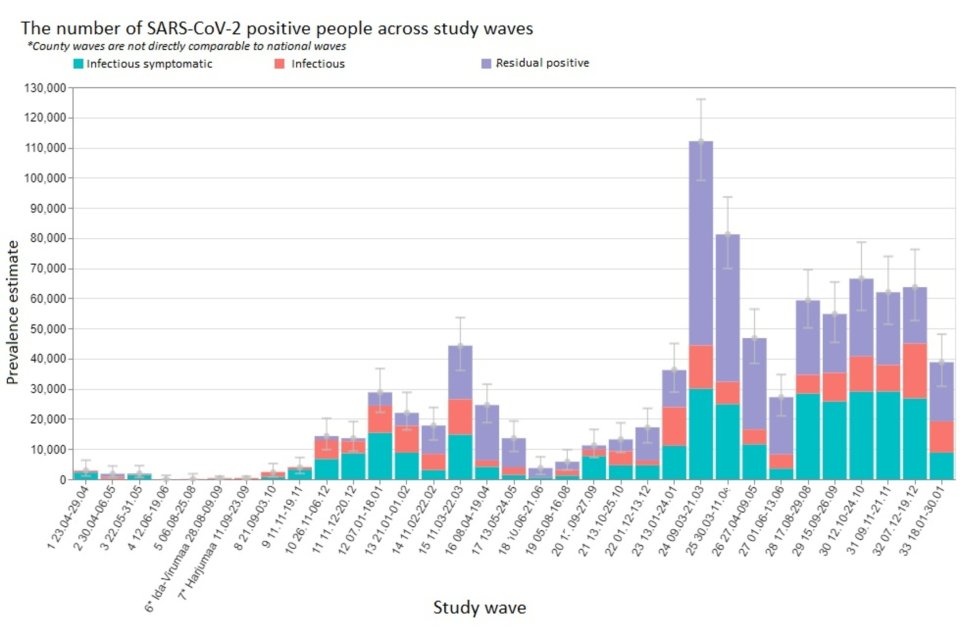-
Faculty of Arts and HumanitiesDean's Office, Faculty of Arts and HumanitiesJakobi 2, r 116-121 51005 Tartu linn, Tartu linn, Tartumaa EST0Institute of History and ArchaeologyJakobi 2 51005 Tartu linn, Tartu linn, Tartumaa EST0Institute of Estonian and General LinguisticsJakobi 2, IV korrus 51005 Tartu linn, Tartu linn, Tartumaa EST0Institute of Philosophy and SemioticsJakobi 2, III korrus, ruumid 302-337 51005 Tartu linn, Tartu linn, Tartumaa EST0Institute of Cultural ResearchÜlikooli 16 51003 Tartu linn, Tartu linn, Tartumaa EST0Institute of Foreign Languages and CulturesLossi 3 51003 Tartu linn, Tartu linn, Tartumaa EST0School of Theology and Religious StudiesÜlikooli 18 50090 Tartu linn, Tartu linn, Tartumaa EST0Viljandi Culture AcademyPosti 1 71004 Viljandi linn, Viljandimaa EST0Professors emeriti, Faculty of Arts and Humanities0Associate Professors emeriti, Faculty of Arts and Humanities0Faculty of Social SciencesDean's Office, Faculty of Social SciencesLossi 36 51003 Tartu linn, Tartu linn, Tartumaa EST0Institute of EducationJakobi 5 51005 Tartu linn, Tartu linn, Tartumaa EST0Johan Skytte Institute of Political StudiesLossi 36, ruum 301 51003 Tartu linn, Tartu linn, Tartumaa EST0School of Economics and Business AdministrationNarva mnt 18 51009 Tartu linn, Tartu linn, Tartumaa EST0Institute of PsychologyNäituse 2 50409 Tartu linn, Tartu linn, Tartumaa EST0School of LawNäituse 20 - 324 50409 Tartu linn, Tartu linn, Tartumaa EST0Institute of Social StudiesLossi 36 51003 Tartu linn, Tartu linn, Tartumaa EST0Narva CollegeRaekoja plats 2 20307 Narva linn, Ida-Virumaa EST0Pärnu CollegeRingi 35 80012 Pärnu linn, Pärnu linn, Pärnumaa EST0Professors emeriti, Faculty of Social Sciences0Associate Professors emeriti, Faculty of Social Sciences0Faculty of MedicineDean's Office, Faculty of MedicineRavila 19 50411 Tartu linn, Tartu linn, Tartumaa ESTInstitute of Biomedicine and Translational MedicineBiomeedikum, Ravila 19 50411 Tartu linn, Tartu linn, Tartumaa ESTInstitute of PharmacyNooruse 1 50411 Tartu linn, Tartu linn, Tartumaa ESTInstitute of DentistryL. Puusepa 1a 50406 Tartu linn, Tartu linn, Tartumaa ESTInstitute of Clinical MedicineL. Puusepa 8 50406 Tartu linn, Tartu linn, Tartumaa ESTInstitute of Family Medicine and Public HealthRavila 19 50411 Tartu linn, Tartu linn, Tartumaa ESTInstitute of Sport Sciences and PhysiotherapyUjula 4 51008 Tartu linn, Tartu linn, Tartumaa ESTProfessors emeriti, Faculty of Medicine0Associate Professors emeriti, Faculty of Medicine0Faculty of Science and TechnologyDean's Office, Faculty of Science and TechnologyVanemuise 46 - 208 51003 Tartu linn, Tartu linn, Tartumaa ESTInstitute of Computer ScienceNarva mnt 18 51009 Tartu linn, Tartu linn, Tartumaa ESTInstitute of GenomicsRiia 23b/2 51010 Tartu linn, Tartu linn, Tartumaa ESTEstonian Marine Institute0Institute of PhysicsInstitute of ChemistryRavila 14a 50411 Tartu linn, Tartu linn, Tartumaa EST0Institute of Mathematics and StatisticsNarva mnt 18 51009 Tartu linn, Tartu linn, Tartumaa EST0Institute of Molecular and Cell BiologyRiia 23, 23b - 134 51010 Tartu linn, Tartu linn, Tartumaa ESTTartu ObservatoryObservatooriumi 1 61602 Tõravere alevik, Nõo vald, Tartumaa EST0Institute of TechnologyNooruse 1 50411 Tartu linn, Tartu linn, Tartumaa ESTInstitute of Ecology and Earth SciencesJ. Liivi tn 2 50409 Tartu linn, Tartu linn, Tartumaa ESTProfessors emeriti, Faculty of Science and Technology0Associate Professors emeriti, Faculty of Science and Technology0Institute of BioengineeringArea of Academic SecretaryHuman Resources OfficeUppsala 6, Lossi 36 51003 Tartu linn, Tartu linn, Tartumaa EST0Area of Head of FinanceFinance Office0Area of Director of AdministrationInformation Technology Office0Administrative OfficeÜlikooli 17 (III korrus) 51005 Tartu linn, Tartu linn, Tartumaa EST0Estates Office0Marketing and Communication OfficeÜlikooli 18, ruumid 102, 104, 209, 210 50090 Tartu linn, Tartu linn, Tartumaa EST0Area of Vice Rector for DevelopmentCentre for Entrepreneurship and InnovationNarva mnt 18 51009 Tartu linn, Tartu linn, Tartumaa EST0University of Tartu Natural History Museum and Botanical GardenVanemuise 46 51003 Tartu linn, Tartu linn, Tartumaa EST0International Cooperation and Protocol Office0University of Tartu MuseumLossi 25 51003 Tartu linn, Tartu linn, Tartumaa EST0Area of RectorRector's Strategy OfficeInternal Audit OfficeArea of Vice Rector for Academic AffairsOffice of Academic AffairsUniversity of Tartu Youth AcademyUppsala 10 51003 Tartu linn, Tartu linn, Tartumaa EST0Student Union OfficeÜlikooli 18b 51005 Tartu linn, Tartu linn, Tartumaa EST0Centre for Learning and TeachingArea of Vice Rector for ResearchUniversity of Tartu LibraryW. Struve 1 50091 Tartu linn, Tartu linn, Tartumaa EST0Grant Office
Coronavirus infections down by more than a third

The results of the January wave of the University of Tartu-led coronavirus prevalence study show a significant decrease in infections and an increase in antibody prevalence. It was the last time the University of Tartu carried out the study. In the future, the Health Board will monitor the virus situation.
In the study wave from 18 to 30 January, 2,179 people were tested for coronavirus. 3.6% of them tested positive, and 1.8% were infectious. In other words, one in every 28 adults is infected at the end of January, and one in 42 is still infectious. Almost half of the infected have no apparent symptoms.

The figure shows the comparative overview of the results of 33 study waves. Source: University of Tartu
According to the head of the prevalence study, the University of Tartu Professor of Family Medicine Ruth Kalda, the virus situation has calmed down. This is confirmed by the decline in the number of cases needing hospitalisation.
While the number of infected has dropped, the percentage of adults with antibodies against the coronavirus has increased. As many as 93% of adults have developed antibodies, which is 3% more than last month and the highest percentage in the history of the prevalence study. According to Kalda, the figures suggest that the growth in the percentage of people with antibodies mainly results from them having had Covid-19.
People’s interest in getting a booster vaccine dose has slightly waned compared to last month. At the end of 2022, more than a third of the elderly were ready to have a booster; currently, less than a third of them plan to do so. Only a tenth of young adults (aged 18–39) are interested in a booster. Kalda said that in the future, primarily the representatives of at-risk groups should get booster jabs to strengthen the body’s defences.
More than 100,000 participants in almost three years
The University of Tartu has led the coronavirus prevalence study since April 2020, when the university suggested it to the government to gather evidence-based information required to manage the health crises. During this period, in the course of 33 study waves, more than 100,000 adults responded to the survey, and more than 80,300 were tested for the coronavirus.
During this period, in the course of 33 study waves, more than 100,000 adults responded to the survey, and more than 80,300 were tested for the coronavirus.
The leaders of the study, Ruth Kalda and the University of Tartu Associate Professor of Public Health Mikk Jürisson, thank everyone who has contributed to getting an evidence-based overview of the coronavirus pandemic by participating in the study over the almost three years.
“No studies of such scope and representativeness, and covering the entire adult population had been carried out in Estonia before. It was made possible by the Estonian people, many of whom were included in the random sample more than once. With our partners from Synlab, Kantar Emor and Medicum, we set up a logistics network to involve people in the survey and collect samples across the country. The study was also a new collaborative experience for researchers. It brought together experts from different disciplines at the university to create a methodology for solving the complex problem and analyse the collected data,” Kalda said.
Health Board will monitor the coronavirus situation
From now on, the Health Board will monitor the prevalence of coronavirus in the same way they monitor influenza and RS-viruses and other viruses of the upper respiratory tract. Samples will be collected in collaboration with family medicine centres and hospitals, primarily to get an overview of the prevalence of the viruses and monitor the emergence of new strains. “To assess the epidemiological situation and forecast hospitalisation rates, we will use targeted sentinel surveillance, wastewater monitoring and sequencing, which give a good picture of the viruses in circulation, their strains and distribution,” said Kärt Sõber, Head of the Department of the Epidemiology of Communicable Diseases of the Health Board.
The study was commissioned by the Government of the Republic and funded by the European Regional Development Fund from the EU measure to respond to the Covid-19 pandemic.
More information about the study is available on the University of Tartu website.
Read more similar news





